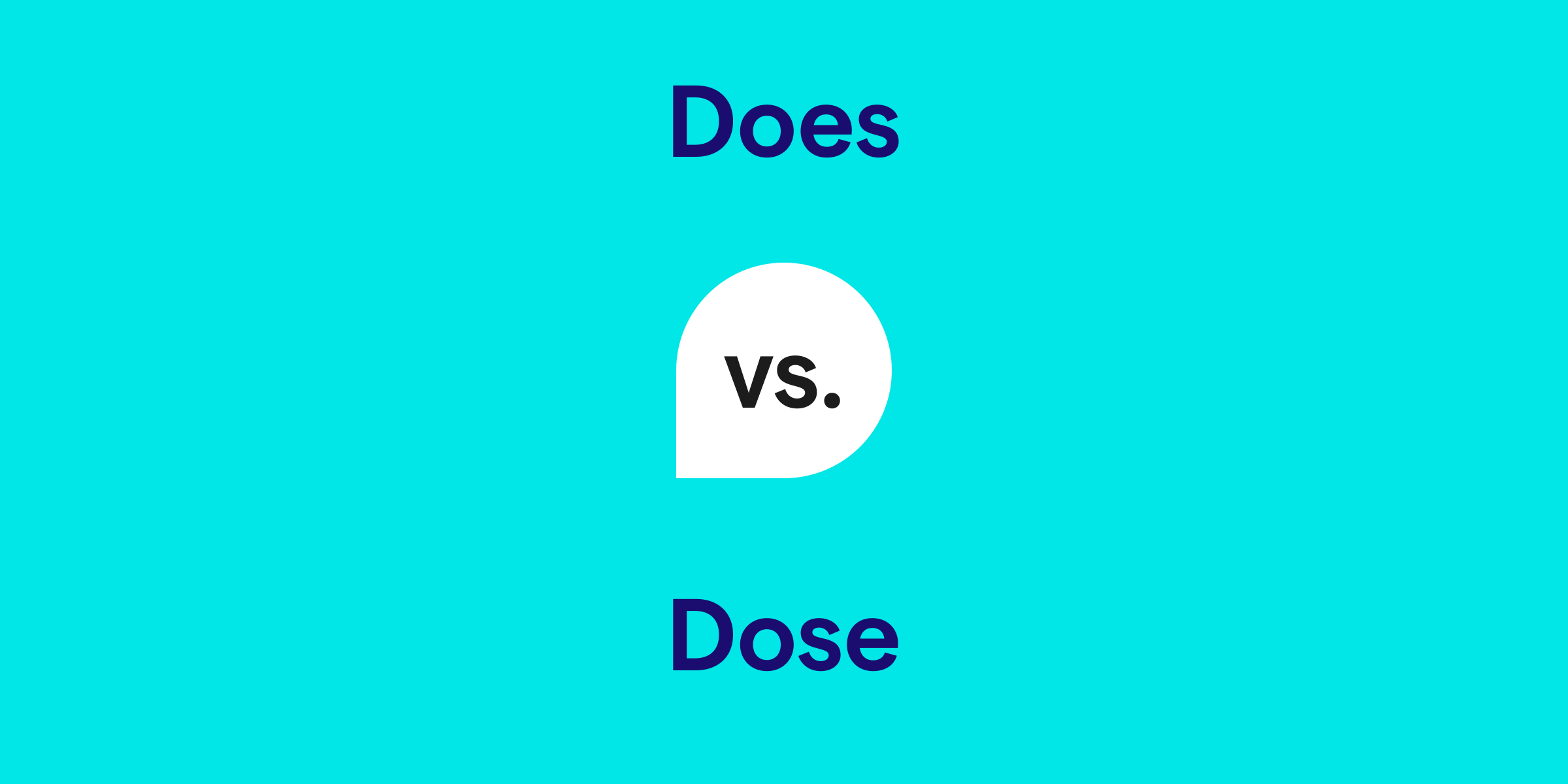Does vs. Dose: What's the Difference?
The words does and dose may sound similar, but they carry entirely different meanings. Does is the third-person singular present tense of the verb 'do,' often used when referring to the actions of someone or something. Conversely, dose refers to a measured quantity of medicine or substance taken at one time or the administration thereof.

How do you use the word does in a sentence?
The word does is used when talking about an action or an occurrence in the present tense, associated with a third-person subject. It is an auxiliary verb that helps to form questions and negatives. This common verb is essential in crafting clear and grammatically correct sentences in the present tense.
Examples of does in a sentence
- She does her homework every evening promptly at six.
- Does this computer have enough memory to run the software?
- The restaurant does not accept credit cards, only cash.
How do you use the word dose in a sentence?
The word dose is usually related to medication or substances, indicating a specific quantity to be taken or administered. It's important when prescribing or discussing medication, as taking the correct dose can affect the treatment's efficacy and safety.
Examples of dose in a sentence
- The doctor prescribed a daily dose of antibiotics for the next ten days.
- Please ensure you take the right dose of vitamin supplements.
- He missed his dose of medication this morning and had to adjust his schedule.
Does and dose definition, parts of speech, and pronunciation
Does definition:
Does: A form of the verb 'do,' used with a third-person singular subject, to indicate an action or existence.
Does parts of speech:
Does pronunciation:
Does: Pronounced /dʌz/.
Dose definition:
Dose: A measured quantity of a medicine, drug, or other substance to be taken at one time.
Dose parts of speech:
Dose pronunciation:
Dose: Pronounced /doʊs/.
Does: A form of the verb 'do,' used with a third-person singular subject, to indicate an action or existence.
Does parts of speech:
- Verb: Does she know the answer to the math problem?
- Auxiliary verb: He does not want to go to the party tonight.
Does pronunciation:
Does: Pronounced /dʌz/.
Dose definition:
Dose: A measured quantity of a medicine, drug, or other substance to be taken at one time.
Dose parts of speech:
- Noun: The doctor increased the dose to reduce the infection.
- Verb (less common): You need to dose the aquarium with the right amount of chemicals to maintain pH balance.
Dose pronunciation:
Dose: Pronounced /doʊs/.
Does vs. dose in a nutshell
In summary, does is a verb that denotes action, commonly used to form present-tense statements and questions involving a third-party subject. On the other hand, dose is predominantly used as a noun to describe a specific quantity of medication or substance. It can also serve as a verb in rare contexts. The key distinction lies in their respective uses: does emphasizes activity, while dose pertains to measurement and consumption.
Get AI Writing Assistance Wherever You Type
Make sure your vocabulary is on point and every punctuation mark is in the right place, no matter where you’re working. Grammarly works across more than 500,000 websites and apps so you can improve your writing without copying, pasting, or breaking focused.

More Commonly Confused Words
Interest piqued? Pore (not pour) over other commonly confused words to help your writing reach peak (not peek) performance.